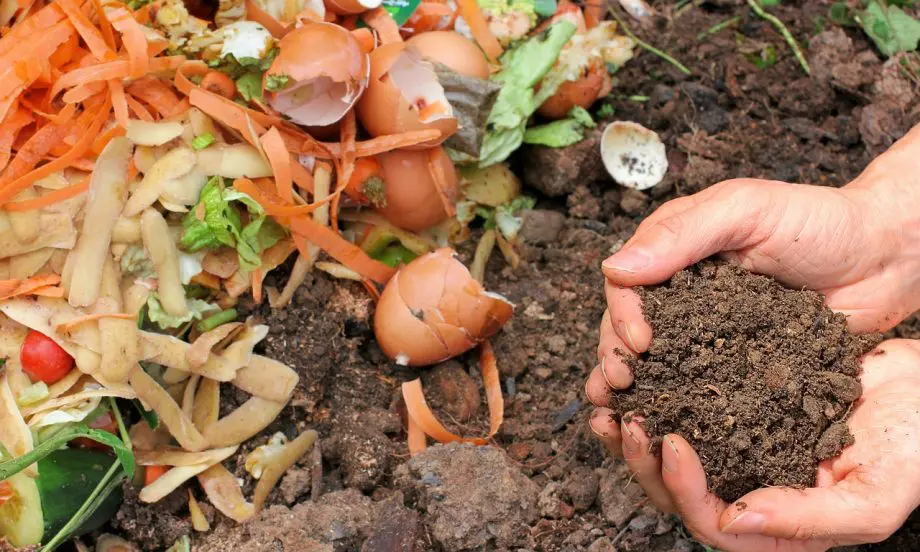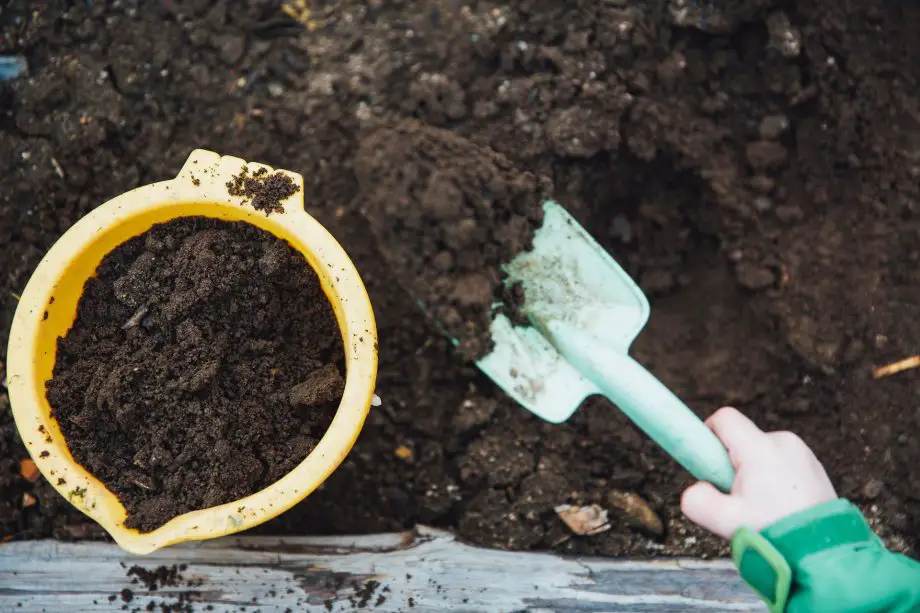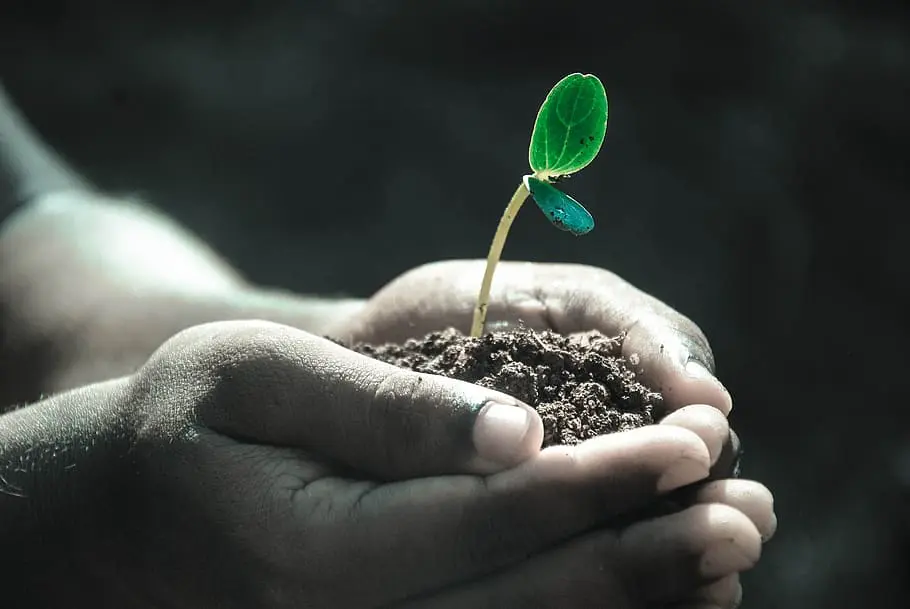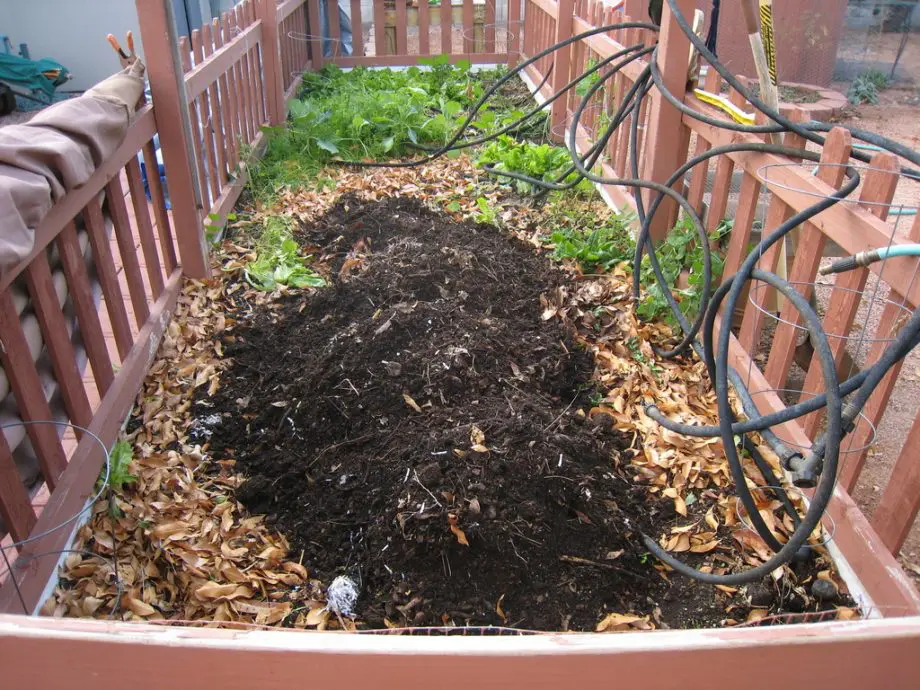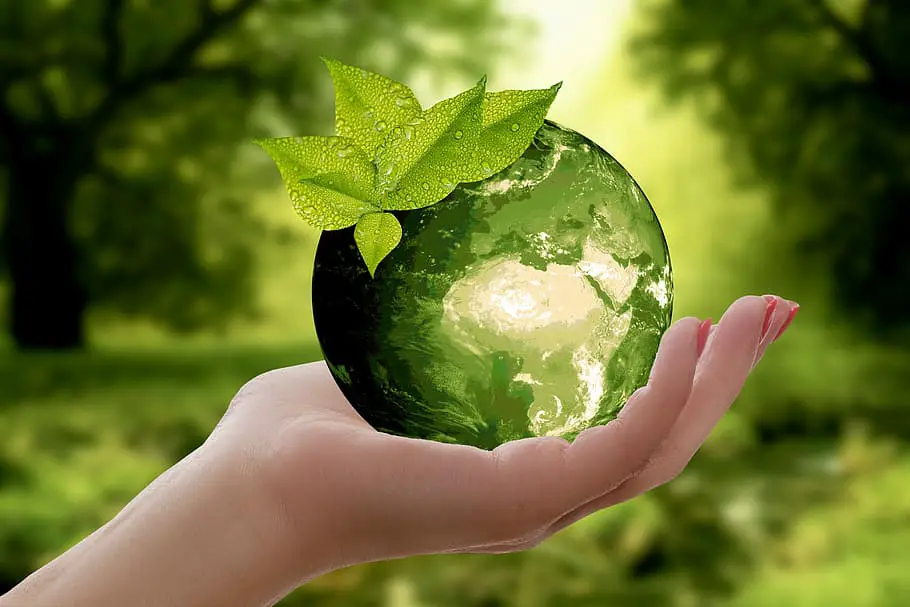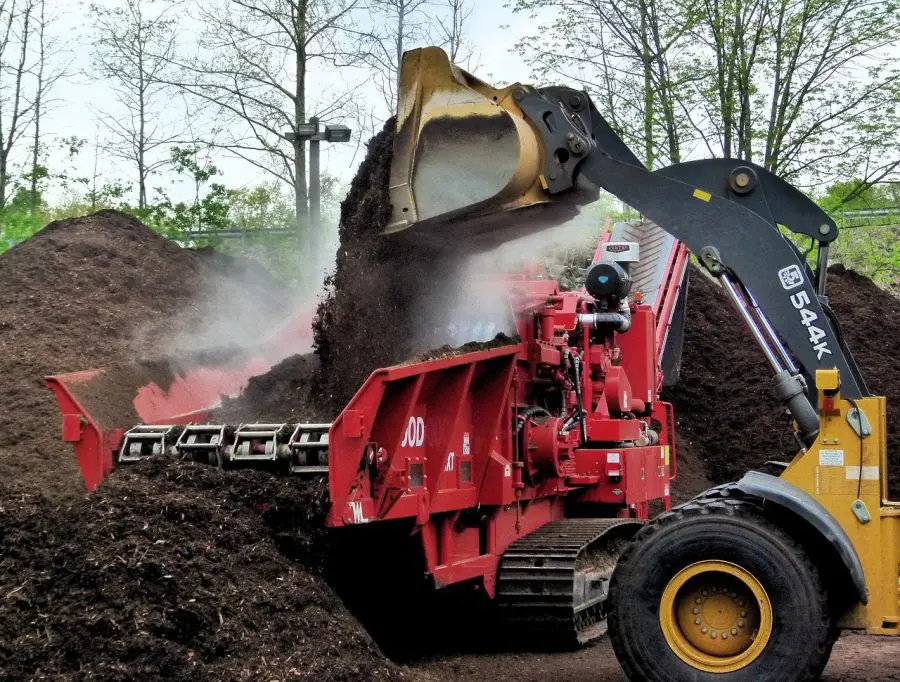
Discover how composting contributes to soil health, boosts plant growth, and helps the environment. The magic of composting has many benefits to soil health.
Ever wondered how a simple act like composting can turn your kitchen scraps and yard waste into a treasure for your garden?
Well, it’s all about the amazing transformation that happens when organic matter breaks down.
This process, known as composting, is a game-changer for any garden, big or small.
But it’s not just about creating nutrient-rich food for your plants.
It’s about understanding how composting contributes to soil health, making it a powerhouse for plant growth and a guardian of our environment.
Let’s dive into this fascinating world and uncover the secrets of composting and its remarkable benefits to soil health.
How Composting Contributes to Soil Health

Welcome to the wonderful world of composting! In this post, we’re going to explore how composting contributes to soil health, turning your garden into a thriving ecosystem.
We’ll delve into the nitty-gritty of composting, from understanding its process to the different methods you can use.
We’ll also uncover the significant role composting plays in enriching the soil, enhancing its structure, and boosting its biodiversity.
But that’s not all! We’ll also discuss the environmental impacts of composting, how to start your composting journey at home, and common mistakes to avoid.
Plus, we’ll answer some frequently asked questions about composting. So, let’s get started and discover the transformative power of composting!
Brief Overview of Composting
Composting, in its simplest form, is a natural process that transforms your everyday organic waste into a nutrient-rich soil conditioner.
Think of it as nature’s way of recycling. You start with kitchen scraps like vegetable peels, coffee grounds, and eggshells, and yard waste like leaves, grass clippings, and branches.
These materials, which might have otherwise ended up in a landfill, are instead placed in a compost bin or pile.
Over time, with a little help from microorganisms, worms, and other critters, these materials decompose.
The end result? A dark, crumbly substance that gardeners fondly refer to as black gold.
It’s a simple process, but it’s one that can make a world of difference in your garden.
Importance of Composting to Soil Health
Now, let’s talk about why composting is such a big deal for soil health.
When you add compost to your garden, you’re not just improving the soil’s structure, but making it easier for plant roots to spread.
You’re also enriching the soil with essential nutrients that plants need to grow.
But it doesn’t stop there. Compost also increases the soil’s ability to retain water, which is crucial for plant growth.
Plus, it introduces beneficial microorganisms to the soil, enhancing its biodiversity.
These microorganisms play a vital role in breaking down organic matter and making nutrients available to plants.
So, by composting, you’re essentially creating a nutrient-rich, moisture-holding, life-supporting environment for your plants.
And that’s just the beginning of how composting contributes to soil health.
Understanding Composting

Ready to dive deeper into the world of composting? Understanding composting is like unlocking a secret superpower for your garden.
It’s about appreciating the beauty of nature’s recycling system and harnessing it to create a thriving, vibrant garden.
In this section, we’ll demystify composting, exploring what it is, how it works, and the different methods you can use.
So, whether you’re a seasoned gardener or a beginner just dipping your toes into the composting world, there’s something here for you.
Let’s get started and unravel the mysteries of composting together!
Definition of Composting
Composting, at its core, is a natural process that transforms organic material like kitchen scraps and yard waste into a nutrient-rich soil conditioner.
It’s nature’s way of recycling, turning what might be considered waste into a valuable resource for your garden.
Composting is like conducting a symphony of decomposition, where you’re the conductor, and the orchestra is made up of billions of microorganisms ready to break down organic matter into a rich, earthy substance known as compost.
The Composting Process
The composting process is a fascinating journey of transformation.
It all starts with your compost pile or bin, where you add layers of ‘greens’ (nitrogen-rich materials like vegetable scraps and coffee grounds) and ‘browns’ (carbon-rich materials like dried leaves and newspaper).
These materials provide the food for the microorganisms that do the heavy lifting in the composting process.
As these tiny creatures break down the organic matter, they generate heat, causing the compost pile to warm up.
This heat accelerates the decomposition process, breaking down the materials into rich, crumbly compost.
It’s a cycle of life, decay, and rebirth that happens right in your backyard!
Types of Composting Methods
There are several methods of composting, each with its own benefits and considerations.
The most common method is backyard composting, where you create a compost pile or use a compost bin in your garden.
This method is great for recycling kitchen and yard waste and is perfect for gardeners with some outdoor space.
Another method is vermicomposting, which involves using worms (usually red wigglers) to consume organic waste and produce worm castings, a rich form of compost.

Vermicomposting is an excellent option for those with limited outdoor space, as it can be done indoors.
Then there’s bokashi composting, a Japanese method that uses a specific group of microorganisms to ferment organic waste.
This method is quick, efficient, and can handle types of waste that other methods can’t, like meat and dairy.
Finally, there’s green composting, which involves composting only plant-based materials.
This method is often used by vegans and those who prefer not to include animal products in their compost.
Each of these methods has its own unique benefits and can be chosen based on your specific needs, available space, and personal preferences.
The Role of Composting in Soil Health
Ever wondered why gardeners are so passionate about composting?
It’s because they know the secret: composting plays a crucial role in soil health.
It’s like giving the soil a superfood-packed smoothie that boosts its health and vitality.
In this section, we’re going to explore the many ways composting contributes to soil health.
From providing nutrients to improving soil structure and enhancing biodiversity, composting is a soil’s best friend.
So, let’s roll up our sleeves and discover the incredible impact composting has on our gardens and the environment!
Nutrient Provision
Think of compost as a multivitamin for your soil. It’s packed with essential nutrients that plants need to grow and thrive.
These nutrients, including nitrogen, phosphorus, and potassium, are released slowly into the soil, providing a steady supply of nourishment for your plants.
But it’s not just about the big three. Compost also contains a host of micronutrients, like calcium, magnesium, and iron, which are vital for plant health.
So, by adding compost to your garden, you’re ensuring your plants get a balanced diet, just like we humans need!
Soil Structure Improvement
Compost also works wonders for your soil’s structure.
If your soil is heavy and clay-like, compost can help loosen it up, improving its drainage and making it easier for plant roots to spread.
On the other hand, if your soil is sandy and loose, compost can help bind it together, increasing its ability to retain water and nutrients.
In other words, compost makes your soil just right for plant growth, whether it’s too heavy or too light to start with.
Enhancement of Soil Biodiversity
Adding compost to your soil is like throwing a party for microorganisms.
Compost is teeming with life, from bacteria and fungi to worms and other tiny creatures.
These microorganisms play a crucial role in the soil ecosystem, helping to break down organic matter and make nutrients available to plants.
They also help to create a crumbly soil structure that’s perfect for plant roots.
So, by composting, you’re boosting your soil’s biodiversity, creating a vibrant, living soil that’s a joy for plants to grow in.
Disease and Pest Resistance
Compost also helps to make your garden more resistant to diseases and pests. How?
Well, healthy soil leads to healthy plants, and healthy plants are better able to resist diseases and pests.
Plus, some of the microorganisms in compost can help to suppress certain plant diseases.
And let’s not forget about pests. Compost can help to create a balanced soil ecosystem that’s less attractive to pests.
So, by composting, you’re not just feeding your plants, you’re also helping to protect them.
The Environmental Impact of Composting
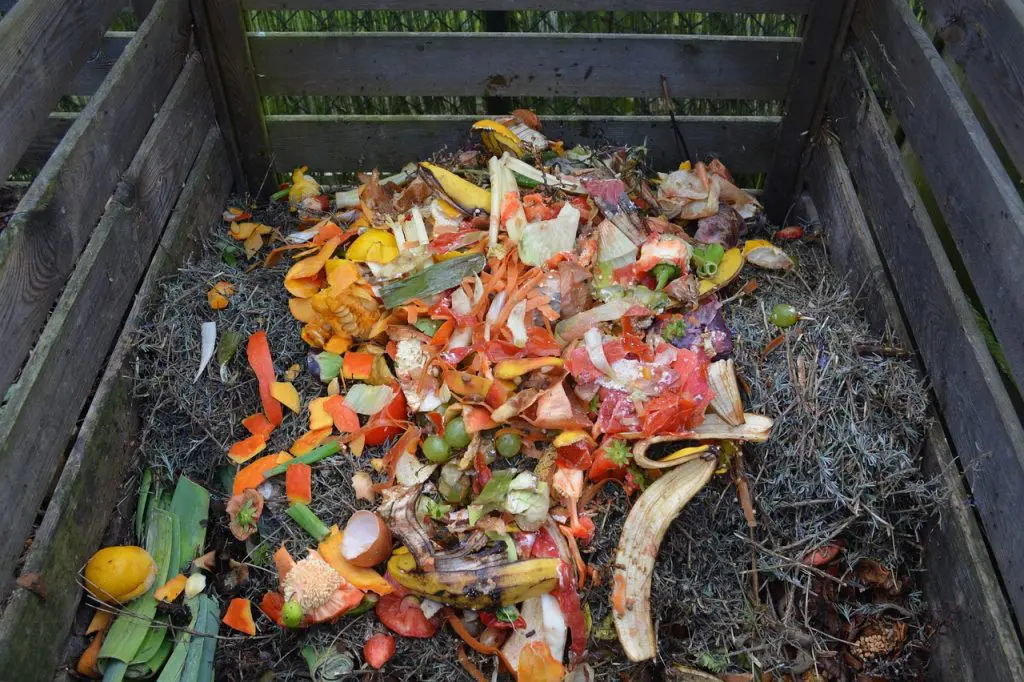
Composting isn’t just good for your garden. It’s also great for the planet!
When we compost, we’re doing more than creating nutrient-rich soil.
We’re participating in a process that has far-reaching environmental benefits.
From reducing landfill waste to mitigating climate change and conserving soil and water resources, composting is an eco-friendly practice with a big impact.
In this section, we’ll explore the environmental side of composting, shedding light on why this simple act can be a powerful tool in our efforts to create a more sustainable world.
So, let’s dive in and discover the green side of composting!
Reduction of Landfill Waste
One of the most immediate environmental benefits of composting is the reduction of landfill waste.
Every banana peel, coffee ground, or leaf you compost is one less item taking up space in a landfill.
And considering that a significant portion of household waste is compostable, that can add up to a lot of waste diverted!
Plus, when organic waste ends up in a landfill, it decomposes without oxygen, producing methane a potent greenhouse gas.
By composting, you’re not just reducing landfill waste, you’re also helping to cut down on methane emissions.
Mitigation of Climate Change
Speaking of greenhouse gases, composting plays a role in mitigating climate change in another way.
When you add compost to your soil, it helps to sequester carbon, pulling it out of the atmosphere and storing it in the soil.
This process helps to offset carbon emissions and combat global warming.
Plus, healthy, compost-rich soil is more resilient to the impacts of climate change, like drought and extreme weather events.
So, by composting, you’re doing your part to fight climate change and build a more resilient garden.
Conservation of Soil and Water Resources
Compost is also a champion when it comes to conserving soil and water resources.
By improving soil structure, compost helps to prevent soil erosion, keeping precious topsoil where it belongs, in your garden, and not washed away by rain.
Compost also increases the soil’s ability to retain water, reducing the need for frequent watering and helping to conserve this vital resource.
And let’s not forget about nutrients. By providing a slow-release source of nutrients, compost reduces the need for synthetic fertilizers, which can contaminate water resources.
So, composting is a win for your soil, a win for water conservation, and a win for the environment!
compost both improves soil’s ability to hold nutrients and delivers much-needed nutrients. It improves nutrient retention by increasing the soil’s cation exchange capacity (CEC) and then it delivers needed food for the plants in the form of nitrogen, phosphorus, and potassium. PlantGrowthBenefits
How to Start Composting at Home
Feeling inspired to start composting at home?
Composting at home is easier than you might think, and it’s a wonderful way to reduce waste, enrich your garden, and contribute to a healthier planet.
In this section, we’ll guide you through the basics of starting your composting journey.
We’ll talk about choosing the right compost bin, what materials you can compost, and how to manage your compost pile to get the best results.
So, whether you have a spacious backyard or a small balcony, there’s a composting method that’s just right for you.
Let’s get started and turn your kitchen scraps and yard waste into black gold for your garden!
Choosing the Right Compost Bin
Starting your composting journey begins with choosing the right compost bin.
There are many types of compost bins available, from simple homemade setups to fancy store-bought models.
The right one for you depends on your needs and circumstances.
If you have a large yard and generate a lot of yard waste, a large outdoor compost bin or compost tumbler might be a good fit.
If you live in an apartment, a small worm composting bin or a bokashi system could be the way to go.
The key is to choose a compost bin that fits your space, your lifestyle, and the amount and type of waste you generate.
What to Compost: Browns and Greens
Once you’ve got your compost bin, it’s time to start filling it with compostable materials.
These can be divided into two categories: browns and greens.
Browns are carbon-rich materials like dried leaves, straw, and newspaper.
They provide the carbon that composting microorganisms need to grow and reproduce.
Greens are nitrogen-rich materials like vegetable scraps, coffee grounds, and fresh grass clippings.
They provide the nitrogen that composting microorganisms need to build proteins.
A good rule of thumb is to aim for a mix of about 2/3 browns and 1/3 greens by volume.
This will give your compost pile the right balance of carbon and nitrogen for efficient composting.
The Composting Process: A Step-by-Step Guide
Now, let’s talk about the composting process. Here’s a simple step-by-step guide to get you started using a bin or compost heap:
• Start your compost pile on bare ground. This allows worms and other beneficial organisms to access the pile and speed up the composting process.
• Layer your compost pile. Start with a layer of browns, then add a layer of greens, and repeat.
Remember to aim for about 2/3 browns and 1/3 greens by volume.
• Turn your compost pile. Every few weeks, give your compost pile a good turn.
This helps to aerate the pile and speeds up the composting process.
• Wait and watch. Over time, your compost pile will heat up, cool down, and eventually turn into rich, crumbly compost.
This can take anywhere from a few months to a year, depending on the conditions.
• Use your compost. Once your compost is ready, you can use it to enrich your garden soil, pot plants, or even make compost tea.
Enjoy the fruits of your labor and the knowledge that you’re contributing to a healthier planet!
Remember, composting is more of an art than a science. Don’t worry if things aren’t perfect. Just start composting, learn as you go, and have fun with it!
Common Mistakes in Composting and How to Avoid Them
Composting is a journey, and like any journey, it can come with a few bumps along the way.
But don’t worry! Most common composting mistakes are easy to avoid once you know what to look out for.
In this section, we’ll explore some of these common pitfalls and share tips on how to avoid them.
Whether it’s using the wrong materials, not providing enough aeration, or mismanaging moisture and temperature levels, we’ve got you covered.
So, let’s dive in and learn how to keep your composting journey smooth and successful!
Incorrect Composting Materials
One common mistake in composting is using incorrect materials. Not all organic matter is created equal when it comes to composting.
While fruit and vegetable scraps, coffee grounds, eggshells, leaves, and grass clippings are all great for composting, other materials like meat, dairy, and diseased plants can cause problems.
These materials can attract pests, produce unpleasant odors, and even spread disease in your compost pile.
So, it’s important to know what can and can’t go into your compost bin.
When in doubt, stick to plant-based materials and avoid anything that could cause issues.
Inadequate Aeration
Another common mistake is inadequate aeration. Composting is an aerobic process, which means it needs oxygen to work properly.
Without enough oxygen, the composting process can slow down, and your compost pile can start to smell bad.
To avoid this, make sure to turn your compost pile regularly. This helps to introduce fresh air into the pile and keeps the composting process running smoothly.
If turning the pile sounds like too much work, you can also add materials like straw or small branches to help create air pockets and improve aeration.
Improper Moisture and Temperature Levels
Finally, improper moisture and temperature levels can also cause problems in your compost pile.
Composting microorganisms need the right conditions to do their job. If the pile is too dry, they can’t break down the organic matter.
If it’s too wet, they can drown. Aim for the consistency of a wrung-out sponge moist, but not soggy.
As for temperature, a compost pile should heat up as the organic matter decomposes.
This heat helps to speed up the composting process and kills off any weed seeds or pathogens.
If your compost pile isn’t heating up, it might need more greens, more volume, or better aeration.
Remember, composting is a balancing act, and it might take a bit of trial and error to get things just right. But don’t worry—you’ve got this!
How Composting Contributes to Soil Health FAQs
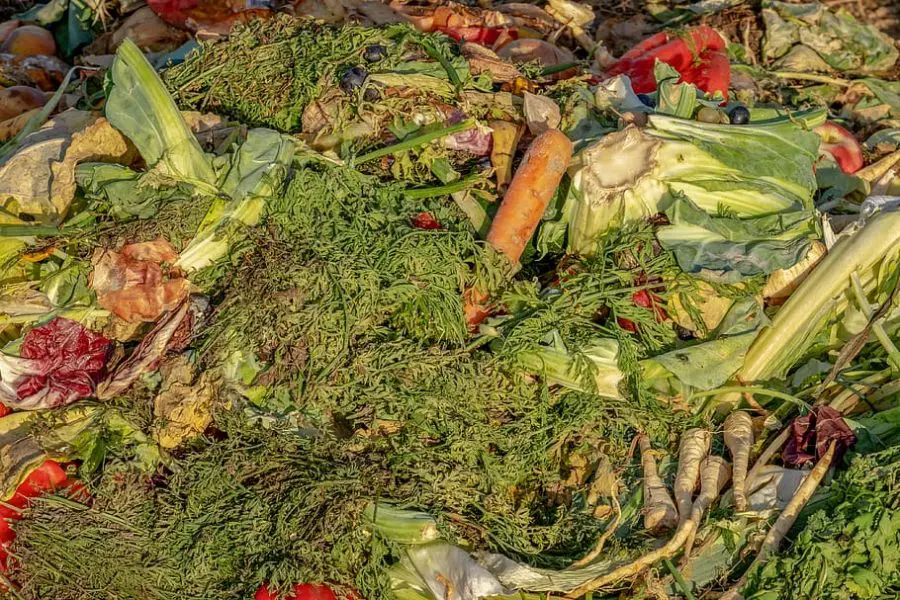
Got questions about composting? You’re not alone!
Composting is a fascinating process, and it’s natural to have questions as you delve into it.
In this section, we’ll tackle some of the most frequently asked questions about composting.
From understanding how compost increases soil fertility to the health benefits of composting and why farmers add compost to the soil, we’ve got you covered.
We’ll even discuss whether compost should be worked into the soil. So, let’s get those burning composting questions answered!
Q: How does compost increase soil fertility?
A: Compost increases soil fertility by adding essential nutrients to the soil, including nitrogen, phosphorus, and potassium.
These nutrients are released slowly over time, providing a steady supply of nourishment for plants.
Compost also introduces beneficial microorganisms that help break down organic matter and make nutrients more available to plants.
Plus, compost improves soil structure and water retention, creating an optimal environment for plant growth.
Q: What is the health benefit of composting?
A: Composting has several health benefits.
For one, it reduces the amount of waste that ends up in landfills, which can reduce pollution and improve community health.
Composting at home also encourages a connection with nature and can provide a sense of satisfaction and well-being.
Additionally, using compost in your garden can lead to healthier, more nutrient-dense fruits and vegetables.
Q: Why do farmers add compost to the soil?
A: Farmers add compost to the soil for several reasons.
Compost enriches the soil with nutrients, improving crop yield and quality.
It also improves soil structure, enhancing the soil’s ability to retain water and resist erosion.
Compost can also help suppress plant diseases and pests, reducing the need for chemical pesticides.
Plus, composting allows farmers to recycle organic waste, making their farming practices more sustainable.
Q: Should compost be worked into the soil?
A: Yes, it’s generally a good idea to work compost into the soil.
This helps to distribute the nutrients evenly and allows plant roots to access them more easily.
However, compost can also be used as a mulch on the soil surface. This can help to suppress weeds, conserve water, and protect the soil from erosion.
The best approach depends on your specific gardening needs and conditions.
How Composting Contributes to Soil Health Conclusion

As we wrap up our journey into the world of composting, it’s clear to see just how powerful this simple act can be.
From enriching our gardens to reducing waste and combating climate change, composting truly is a win-win for us and the planet.
But the beauty of composting is that it’s not just about the end product.
It’s about the process, the learning, and the connection with nature that comes along the way.
So, whether you’re a seasoned composter or just starting out, remember to enjoy the journey.
Now, let’s conclude our exploration and reflect on the incredible benefits of composting and its contribution to soil health.
Recap of the Importance of Composting to Soil Health
As we’ve discovered throughout this post, composting plays a crucial role in soil health.
It’s like a superfood for your garden, providing a steady supply of essential nutrients that plants need to thrive.
But it’s not just about nutrients. Composting also improves soil structure, making it easier for plant roots to spread and for the soil to retain water.
It boosts soil biodiversity, introducing beneficial microorganisms that help break down organic matter and make nutrients available to plants.
And let’s not forget about disease and pest resistance. Healthy soil leads to healthy plants, and healthy plants are better able to resist diseases and pests.
So, composting truly is a game-changer when it comes to soil health.
Encouragement for More People to Start Composting
If you’re not composting yet, we hope this post has inspired you to start.
Composting is a simple act with profound benefits for your garden, your health, and for the planet.
It’s a way to reduce waste, combat climate change, and create a thriving garden.
And the best part? Anyone can do it. Whether you have a large backyard or a small apartment, there’s a composting method that’s right for you.
So, why not give it a try? Start composting today and join the growing movement of people who are turning their kitchen scraps and yard waste into black gold for their gardens. Happy composting!




